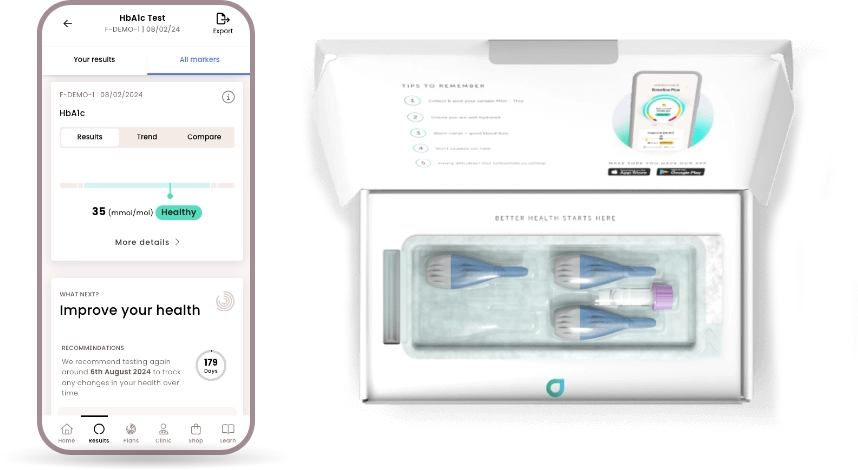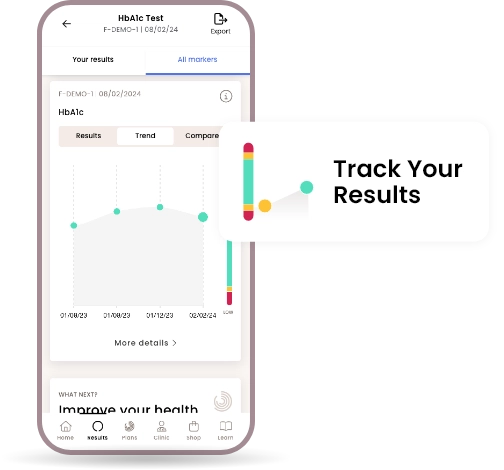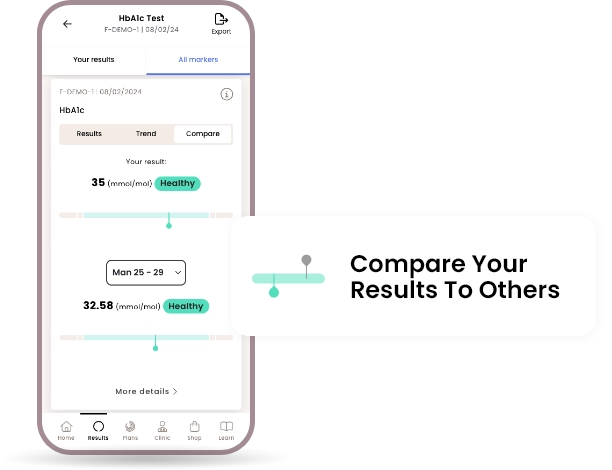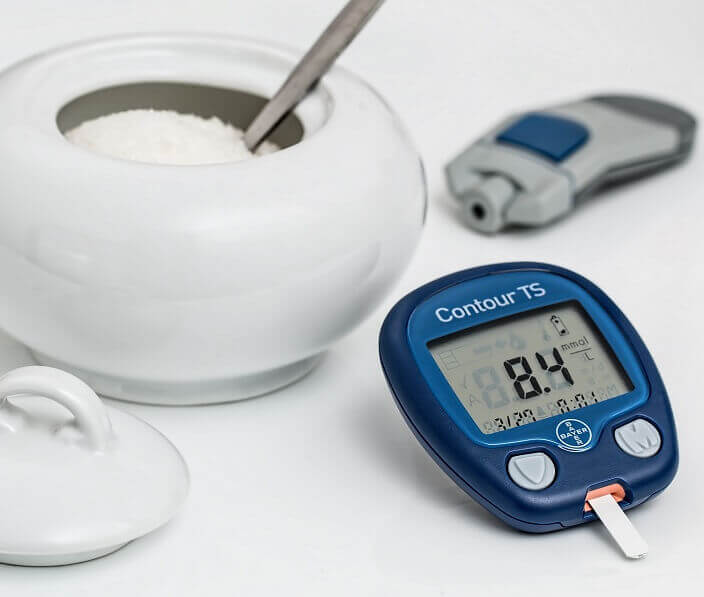About flexible subscriptions
How does a subscription work?
When you purchase this test subscription plan, we will automatically send you another test kit in a few months. Don't worry - you have full control over when this will be, and you can change/cancel it anytime.
When you first purchase this test, you can choose your subscription options in the checkout. We do this, because we recommend taking multiple tests over time to track how your biomarkers change. You'll be charged per test kit (rather than monthly, for example).
Why subscribe to multiple tests?
One test will show you what areas you need to focus on, continued testing will help you learn how your training, diet and lifestyle is impacting your health.
How often should I test?
We recommend a follow up test 3 months after your first test, followed by a test every 6 months depending on your results, but its up to you!
Can I change what's tested in future tests?
Yes, you can tailor/customise subsequent tests (via your app) to focus on just the areas that need improving.
HbA1c (pre-diabetes) Blood Test
Our HbA1c blood test measures average blood glucose levels over a 10-12 week period. Gain accurate data on the amount of sugar in your diet and reduce your risk of type 2 diabetes.
Validated & analysed by NHS Lab
Finger prick or venous collection
Doctor reviewed
Results in 2 working days
£46
Shop now. Pay over time with Klarna
Klarna available at checkout.
Klarna's Pay in 3 / Pay in 30 days are unregulated credit agreements. Borrowing more than you can afford or paying late may negatively impact your financial status and ability to obtain credit. 18+, UK residents only. Subject to status. Ts&Cs and late fees apply.
What gets tested?
1 Biomarkers
Blood sample collection options
How does it work?
Certified for quality & security
Blood sample collection options
You can choose your preferred collection method when you checkout
Finger prick kit (FREE)
You can do this test at home without the need for a doctor. We'll send you everything you need to collect your sample and post it back to us. And it's all included in the cost. We've put together a video that covers the process, making it easy to check and track your health from home.
Home nurse appointment (+£60)
We'll arrange for a medical professional to visit your home and collect your sample. This is great if you're unsure on how it all works or have trouble collecting a sample. No need to book a doctor's appointment or visit a clinic, we'll send you everything you need to collect a sample and post it back to our labs.
Visit a partner clinic (+£45)
Once you've ordered your test, look out for an email from our phlebotomy partners containing information and a link to book your appointment. We'll send you everything the clinic will need to complete the sample and post it back to our labs.
Organise a nurse myself (FREE)
If none of the above options work for you, you can arrange your own medical professional to collect your sample. There is no additional charge for this. Once you've ordered your test, we'll send you everything you and your chosen medical professional will need to collect a sample and post it back to our labs.
Still unsure how it works? You can find more information on collection methods and the service we provide in our 'How it Works' section.
How does it work?
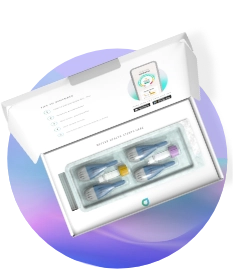
1. Choose your blood test
No need to wait for a GP appointment, choose from our wide range of tests which come with everything you need to take your sample and return to our lab.
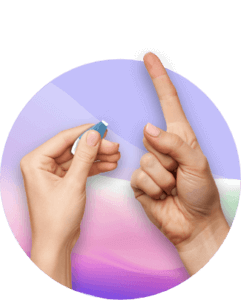
2. Collect your sample
Take your finger prick blood sample at home, or choose to have your blood taken at a Superdrug health clinic or a nurse at home. Return to our NHS lab using our prepaid envelope.
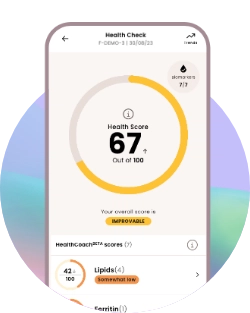
3. View your results
View your results on your secure health dashboard within 2 working days of our lab receiving your sample. Read personalised comments from our GPs.
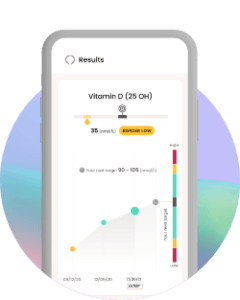
4. Make improvements
With more in-depth results, you will be able to identify areas that need improving. Make the changes and track your progress.
What gets tested?
1 Biomarker Included
Additional biomarkers can be added by personalising this test.
What are biomarkers?
Biomarkers are specific compounds we can detect in your blood sample that reflect different things about your health. Your test will tell you your levels for each of the above biomarkers, and whether they are in a normal range.
Did you know?
Around 850,000 people could be living with diabetes who are yet to be diagnosed
Diabetes UK: How many people in the UK have diabetes?Why do the HbA1c (pre-diabetes) test?
If you are worried that your lifestyle may be putting you at risk of developing type 2 diabetes, then it’s recommended you take this test. It is also suitable for those with type 2 diabetes who want to monitor their condition.
How to test for diabetes at home
Our HbA1c test is a finger-prick test that can help you test for diabetes at home. The test kit contains everything you need to collect your blood sample at home, including free return postage to send the sample to our labs for analysis. You’ll get a detailed report and comments from our medical team, helping you to understand the results and your health.
What is a normal hba1c level in the UK?
The ‘normal’ HbA1c level will vary depending on your age, but there are some guidelines on what a good level is depending on what stage of diabetes you’re in;
- Non-diabetic: 20-42mmol/L
- Prediabetes: 42-48mmol/L
- Diabetes: over 48mmol/L
Frequently asked questions
This is what our customers ask us most about this test. For more information, try our help centre.
What is prediabetes?
Prediabetes is the stage before type 2 diabetes is diagnosed. During pre-diabetes, your blood glucose levels are increased above normal but are not high enough for a type 2 diabetes diagnosis. Therefore, it is the critical period before diabetes is diagnosed and, if spotted, may be improved with simple changes to your lifestyle.
Prediabetes is often used to describe two conditions. Impaired fasting glucose (IFT), when your blood glucose levels are increased after a period of fasting, or impaired glucose tolerance (IGT) where your blood sugar levels are increased beyond normal after eating.
It is not an uncommon condition either, up to 7 million people in the UK are believed to be prediabetic.
Read more in our article ‘Is Prediabetes Reversible?‘
What is an HbA1c blood test for?
An HbA1c test is used to test for prediabetes or type 2 diabetes in adults. Unlike other tests, it gives you an average blood glucose reading over a period of up to three months rather than at the time of testing. It is often considered the gold standard in diabetes testing.
What is the test for diabetes type 2?
An HbA1c blood test is the gold standard for diagnosing diabetes type 2. It gives an average measure of your blood glucose levels over the last 2-3 months.
What is a healthy HbA1c level?
For people who do not have type 2 diabetes, a normal HbA1c level is between 20-42mmol/mol.
Is the amount of people with diabetes growing?
In the UK, 4.7 million people have diabetes and this is expected to rise to 5.5 million within the next decade. 90% of people who have had a diagnosis have type 2 diabetes whereas type 1 accounts for around 8%.
Yet the actual figure could be higher because there is an estimated one million people living with type 2 diabetes in the UK who haven’t been diagnosed. The prevalence of type 2 diabetes is a problem, not least because it costs the NHS a staggering £173 million per week.
The increase in obesity is largely to blame for the rise in type 2 diabetes cases. In fact, it is the biggest risk factor for the development of the condition. Yet, by taking control of your own health and understand what’s really going on inside you, you can take positive action to lower your risk by making changes to your lifestyle.
What can cause a high HbA1c level?
Several factors can contribute to an increase in HbA1c levels such as obesity or being overweight, lack of exercise, an unhealthy diet, diabetes, stress and even some medications.
What can I do to reduce my HbA1c level?
There are several things you can do to help lower your HbA1c level such as eat a healthier diet consisting of low glycaemic index foods, exercise regularly, reduce stress and lose weight are just a few.
Use our at home HbA1c blood test to monitor and check your HbA1c levels.
How soon will the test arrive?
If you order your test before midday on a Monday to Friday then your kit will be dispatched
the same day.
All our kits are sent out via Royal Mail first class post, so it should be with you within 1-2
working days.
How secure is my data?
We have strict processes in place to ensure the protection of your data. Following GDPR the company also operates under tight legal rules about the sharing of data which ensures that data is only shared if it is crucial to the delivery of our service. For example, our doctors see customer results at the time of review, however, after review, access to results is withdrawn.
Learn more about your data security.
Can I have someone take my blood for me?
Yes. We offer two options if you do not want to do our finger prick test. The first is a home appointment where a nurse comes to your home to take a blood sample. The second is to visit a Phlebotomy clinic near you that offers a blood sample service.
A blood sample will be taken from your vein and we will provide you with everything you need to give to the nurse to allow them to take the sample.
The nurse will give you the blood sample to return to us using the pre-paid envelope provided.
Does a doctor review my results?
We have a team of doctors and nurses who look at all results and will comment on any results that are outside of the normal range for your age.
Can I download the results to share with my GP?
Yes, you can download your results from your health dashboard as a PDF to share with your GP.
Learn how to export your results.
We are dedicated to supporting you on improving your health
Go to help center
HbA1c Blood Test, recommended by our doctors
"An HbA1c blood test assesses long-term blood sugar control in diabetes. It measures the percentage of haemoglobin with attached glucose over about three months. The result indicates average blood sugar levels during that time, helping doctors identify, monitor and manage diabetes."
Dr Thom Phillips
Similar tests
- Health scores calculated
Close
We're changing people's lives
How our HbA1c Blood Test works
Getting the insights you need to improve your health has never been easier.

1. Choose your blood test
No need to wait for a GP appointment, choose from our wide range of tests which come with everything you need to take your sample and return to our lab.

2. Collect your sample
Take your finger prick blood sample at home, or choose to have your blood taken at one of our partner clinics or a nurse at home. Return to our NHS lab using our prepaid envelope.

3. View your results
View your results on your secure health dashboard within 2 working days of our lab receiving your sample. Read personalised comments from our GPs.

4. Make improvements
With more in-depth results, you will be able to identify areas that need improving. Make the changes and track your progress.
What's included in this test?
1x Purple Tube
3x Lancets

1x Cleansing wipes

Plasters

2x Alcohol swabs
1x Return pouch

1x Tracked 24 return envelope
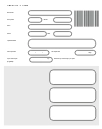
1x Lab request form
Blood sample kit
Results within 2 working days
Tracked 24 delivery & return
Secure health dashboard
Accredited lab analysis
Doctor reviewed results
Our impact in numbers...
70+
From hormones to nutrients, we offer 70+ different tests
60,000+
We've helped over 60,000 people improve their health
800,000+
We've delivered over 800,000 test results
Related articles
Like this article? Here are some more based on similar topics.
HbA1c (pre-diabetes) Blood Test

